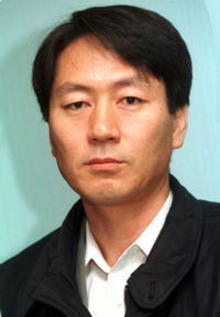 |
Everyone knows that opposing the currently proposed free trade agreement (FTA) between the U.S. and Korea does not mean you are necessarily opposed to FTAs in general. No one really thinks that Korea would be closing its doors to the world if it doesn’t go ahead with this FTA with the U.S. With the exception of just a few areas, is Korea now not so open that the door couldn’t possibly be opened any further? The Korean economy is 70 percent dependent on trade, millions travel overseas, and foreign capital has encroached on smaller companies and shares on the stock market; how can one go on about Korea turning to feudal isolationism? Does opposing the FTA with the U.S. mean people want to shut the country’s doors to America, cut off diplomatic relations, and stop all imports and exports? Those who say such silly things know that they are talking nonsense and being childish. But they keep at it because they know it is in their interest. The "realists," who denounce criticism of the U.S. and Japan as senseless thinking on the part of "idealists," demand to know how Korea could survive without either. Put differently, realism means, "He who is weak should shut up and do what the strong guy tells him if he wants to be able to eat a few scrapings. How can you be so silly as to be impractical about not having anything?" However, opportunity comes to those who see the strengths, weaknesses, and true intentions of the arguments made by those who are powerful. It comes to those who see holes in those arguments, those who take the powerful to task, all with a cool head. Opportunity does not come to those who just sing America’s praises and follow right along behind their wishes. Those who do so are either stupid or instinctively know that maintaining the status quo is entirely to their advantage. Any opinion that runs contrary to the existing framework makes these people nervous and upset, as they think that all impure behavior that threatens the establishment must be crushed. Cambridge professor Chang Ha-joon calls it a nasty example of "kicking away the ladder," where those that reach the top of the ladder first in the course of competition kick it away so others are unable to climb it.





